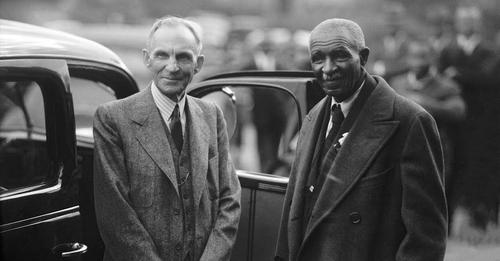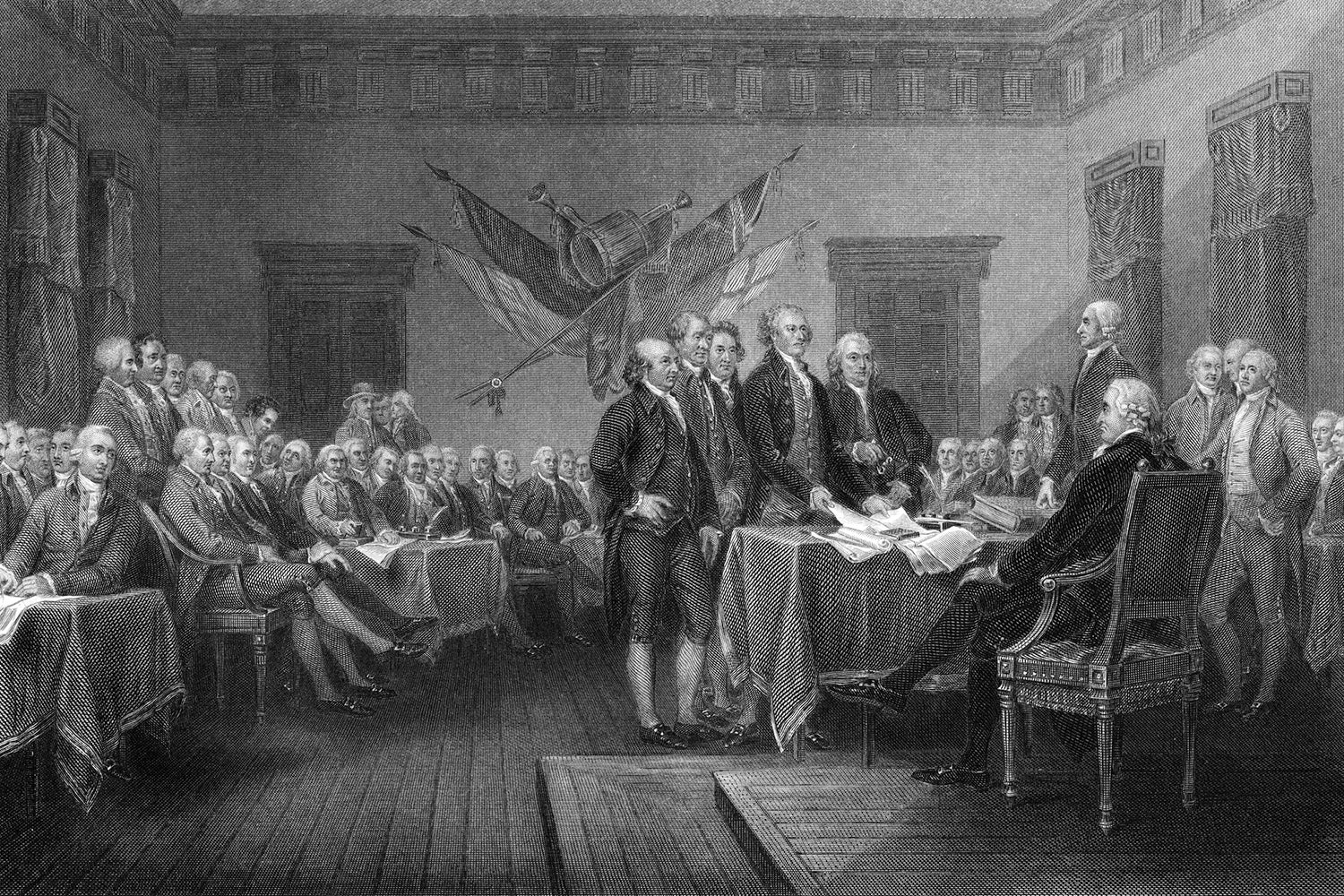George Washington Carver, born into slavery in the early 1860s, overcame immense obstacles to become one of the most influential figures in agricultural science and education. His groundbreaking work revolutionized farming practices and uplifted rural communities, leaving an indelible mark on American history.
Early Life and Education
Born in Diamond Grove, Missouri, Carver’s exact birth date remains uncertain, but it is believed to be around 1864. Despite facing the harsh realities of slavery, Carver displayed an insatiable curiosity and a passion for learning from a young age. His thirst for knowledge led him on a remarkable journey of self-education and perseverance.
After emancipation, Carver pursued formal education, eventually earning a Bachelor of Science degree from Iowa State Agricultural College (now Iowa State University) in 1894. He went on to become the first African American student and faculty member at the institution, breaking barriers and paving the way for future generations.
The Legacy of Innovation
Carver’s contributions to agricultural science are unparalleled. He dedicated his life to researching and promoting sustainable farming practices, with a particular focus on crop rotation and soil conservation. Carver’s experiments with peanuts, sweet potatoes, george washington carver” and soybeans revolutionized agricultural production in the South, which was heavily reliant on cotton and tobacco.
One of Carver’s most significant achievements was his promotion of crop diversification as a means of combating soil depletion and enhancing soil fertility. By encouraging farmers to rotate their crops and incorporate nitrogen-fixing legumes into their fields, Carver helped revitalize exhausted soils and improve agricultural yields.
Promoting Economic Empowerment
Beyond his scientific contributions, Carver was a passionate advocate for economic empowerment and self-sufficiency among African American farmers. He believed that through education and innovation, rural communities could break free from the cycle of poverty and dependence.
Carver’s promotion of alternative crops such as peanuts and sweet potatoes not only diversified agricultural production but also created new economic opportunities for farmers. He developed hundreds of products derived from these crops, including peanut butter, sweet potato flour, and vegetable dyes, demonstrating their versatility and market potential.
George Washington Carver (c. 1864 – January 5, 1943) was an American agricultural scientist and inventor who developed hundreds of products using peanuts, sweet potatoes, and soybeans. He was one of the most prominent black scientists of the early 20th century and a key figure in the Tuskegee Institute.
Early life and education:
Born into slavery in Missouri, Carver had a difficult childhood. He was orphaned at a young age and was apprenticed to a family in Kansas, where he developed a love for plants and agriculture. He eventually escaped to Iowa, where he earned a bachelor’s degree and a master’s degree in agricultural science from Iowa State College (now Iowa State University).
Career and achievements:
In 1896, Carver was invited to join the faculty of the Tuskegee Institute, a historically black college in Alabama. He spent the next 47 years at Tuskegee, where he conducted research on soil improvement and developed new uses for crops such as peanuts, sweet potatoes, and soybeans. He developed over 300 products from these crops, including paints, plastics, cosmetics, and medicines.
Impact and legacy:
Carver’s work had a significant impact on the agricultural economy of the South, helping to diversify crops and improve soil fertility. He was also a vocal advocate for racial equality and education. His legacy continues to inspire scientists and inventors around the world.
Here are some of Carver’s most notable achievements:
- Developed over 300 products from peanuts, sweet potatoes, and soybeans.
- Helped to improve soil fertility in the South.
- Was a vocal advocate for racial equality and education.
- Founded the George Washington Carver Museum at Tuskegee University.
- Was awarded the Spingarn Medal, the highest honor given to an African American by the NAACP.
Carver’s work is still relevant today, as we face challenges such as climate change and food insecurity. His ingenuity and dedication to his community continue to inspire us all.
A Visionary Educator and Mentor
Throughout his life, Carver was committed to sharing his knowledge and expertise with others. He served as a teacher and mentor to countless students, instilling in them a love of learning and a sense of pride in their agricultural heritage. His work at the Tuskegee Institute (now Tuskegee University) provided a platform for him to educate future generations of African American scientists and innovators.
Carver’s legacy extends far beyond his scientific achievements. He embodied the values of perseverance, resilience, and compassion, inspiring millions of people around the world to pursue their dreams and make a positive impact on society.
Honoring a Visionary Leader
George Washington Carver contributions to science, education, and social progress are unparalleled. His innovative spirit and unwavering dedication to improving the lives of others continue to inspire generations of scientists, educators, and activists.
As we reflect on Carver’s legacy, let us celebrate his remarkable achievements and commit ourselves to carrying forward his vision of a more sustainable, equitable, and inclusive world.
In conclusion, George Washington Carver remarkable journey from slavery to scientific renown serves as a testament to the power of perseverance, ingenuity, and compassion. His pioneering work in agricultural science continues to shape our understanding of sustainable farming practices and his legacy lives on as an enduring source of inspiration for generations to come.
FAQs (Frequently Asked Questions)
- Who was George Washington Carver? George Washington Carver was a pioneering scientist and educator who made significant contributions to agricultural science and rural development in the United States. Born into slavery in the 1860s, Carver overcame adversity to become one of the most influential figures of his time.
- What were George Washington Carver’s major contributions? George Washington Carver is best known for his work in promoting sustainable farming practices, including crop rotation and soil conservation. He conducted extensive research on alternative crops such as peanuts, sweet potatoes, and soybeans, developing innovative uses for these commodities and revolutionizing agricultural production in the South.
- Why is George Washington Carver important? George Washington Carver’s impact extends beyond his scientific achievements. He was a passionate advocate for economic empowerment and education, particularly among African American farmers. Carver’s innovative spirit and commitment to social progress continue to inspire generations of scientists, educators, and activists.
- What is George Washington Carver’s legacy? George Washington Carver’s legacy encompasses his pioneering work in agricultural science, his dedication to education and mentorship, and his advocacy for social and economic empowerment. His innovative spirit, resilience, and compassion serve as an enduring source of inspiration for people around the world.
- How can I learn more about George Washington Carver? To learn more about George Washington Carver’s life and contributions, consider visiting museums, historical sites, and online resources dedicated to his legacy. Additionally, reading biographies and scholarly articles can provide valuable insights into his remarkable journey and impact on society.
- What lessons can we learn from George Washington Carver’s life? George Washington Carver’s life teaches us the importance of perseverance, resilience, and compassion in the face of adversity. His commitment to making a positive impact on society through education, innovation, and service serves as a powerful example for us all.
- How can I honor George Washington Carver’s legacy? You can honor George Washington Carver’s legacy by continuing his work in promoting sustainable agriculture, supporting education and mentorship initiatives, and advocating for social and economic equality. By embodying his values of perseverance, innovation, and compassion, you can contribute to creating a better world for future generations.














